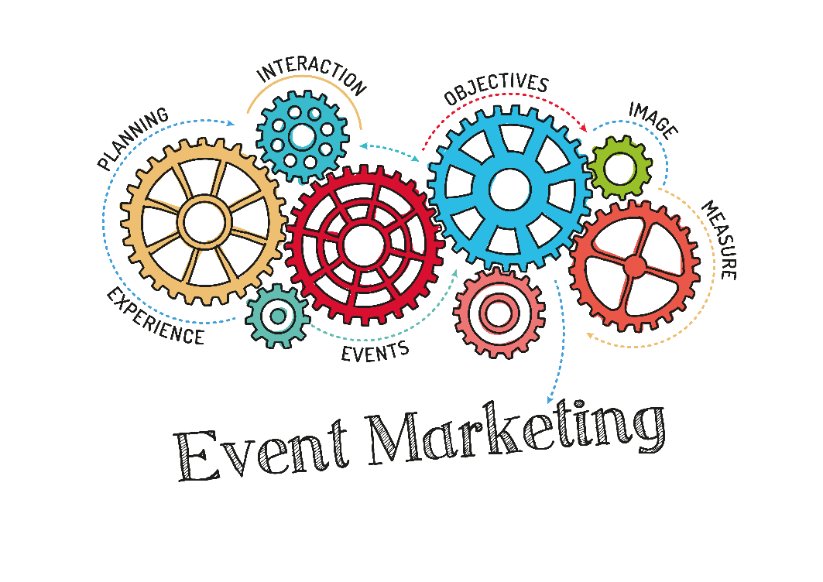
B2B event marketing has experienced waves of change in recent years, but its value hasn’t waned. During the pandemic, virtual events boomed and accelerated innovation. Hybrid options created new opportunities for audiences across the globe to interact in real-time, whether they were physically present or tuning in via live streaming. While these new event formats enabled people to connect in different ways, nothing can replicate face-to-face interaction. In business, that connection is central to building trust and earning customers’ business.
As in-person gatherings return, live events are essential to foster the human connection that makes businesses grow and thrive. Studies suggest that more than 90 percent of CEOs believe events are an effective way to create brand awareness, deepen relationships and accelerate opportunities.
9 Types of Events for Your Marketing Toolkit

The state of today’s B2B event marketing looks a bit different than in previous years. Small, large, in-person, live, virtual, recorded or hybrid—marketers have more ways than ever to connect with their target audiences. When retooling your B2B event marketing plan, consider integrating the following event formats into your strategy:
- Product launches and demonstrations are essential for showcasing what new product offerings can accomplish for prospects and clients. An event centered around a launch or demonstration generates excitement around a new opportunity. It also gives prospects a first-person look at your product with a representative of the company on-hand to answer questions and demonstrate the finer points of the product’s capabilities. This type of hands-on interaction is critical for moving prospects toward a buying decision. In fact, studies have shown that the more senses individuals use when interacting with a product, the more likely they are to create an emotional connection with the experience.
- Trade shows and exhibitions are targeted events for specific industries to promote products or services at large, shared venues. Research shows that 90 percent of participants attend a trade show in search of new products and services that can solve their biggest challenges. Trade shows aren’t the least expensive option for exhibitors or attendees, but their highly targeted nature makes them one of the most valuable places to make new connections and see existing customers.
- Conferences, similar to trade shows, bring together specific industries under the same roof. In the case of conferences, however, the goal is less about promotion and more about shared expertise. Conferences without exhibitors can act as a hub for presentations, workshops and networking. Whether seeking new industry knowledge or showcasing your own expertise, there are ample opportunities to improve your brand’s visibility and credibility in the marketplace. Depending on the size of the conference, there can be multiple events happening simultaneously. It’s important to prioritize where your company presence can benefit most.
- Speaking engagements can be integrated into large-scale events or as stand-alone programs. Speakers do more than share their knowledge on a topic. A successful speaker has the skill and passion to tell engaging, empowering and authentic stories that resonate emotionally with audiences. That connection allows speakers and the brands they represent to gain name recognition and credibility with prospects, customers and influencers. Public speaking builds brand awareness. It’s also a direct way to create a great first impression, establish trust and create opportunities for ongoing relationships.
- Workshops and classes create interactive experiences for audiences and offer value to those who need it most. By positioning leaders in a space intended for shared knowledge, attendees understand your brand is an expert in its field through direct insights and interaction. Unlike written educational content, workshops provide opportunities to engage directly with prospects, answer questions, address concerns and provide personalized solutions.
- Client meetings and events are a valuable experience for current customers. Naturally, these can vary in scale. Sometimes it’s important to connect with a single, valuable account to maintain a relationship of mutual support. Other times, it can be beneficial to host a large-scale event for a segment of loyal customers or a specific industry segment that connects a variety of stakeholders. Whatever the size, meetings and events designed to benefit already loyal customers are powerful in solidifying ongoing, meaningful customer relationships. When companies take the time to meet one-on-one or in small groups, customers feel seen, listened to and valued.
- Industry mixers and networking events can take on many shapes and sizes, so it’s important to determine which ones matter for your organization and at what employee level. Networking events can offer new or entry-level employees valuable learning opportunities. Executives and managers find them valuable for discovering new vendors, partners or potential employees. First, identify which mixers or events are most relevant to your industry or current needs. At the event, keep an open mind and demeanor that invites new and even unexpected opportunities. Online networking options have grown, yet 68 percent of event marketers say they are more challenging than their in-person counterparts.
- Webinars are online events organized by a speaker or multiple speakers to an online audience at a scheduled time and typically are recorded and distributed for ongoing use and viewership. The speaker or speakers address a topic in their area of expertise through visual and audio content via web conferencing software. This software also enables the audience to ask questions or communicate with other audience members via live chat. Webinars encourage brands and experts to engage directly with target audiences. This generates viable leads in a setting that doesn’t break the bank. Further, webinar and lead-capture software provide valuable data about participants and their industry segments. Because webinars have grown in popularity, advertising and distribution are key to attracting an interested audience. Due to their highly targeted nature in addressing key industry issues, 73 percent of B2B marketers said that webinars are the best way to generate high-quality leads.
- Live streaming events are growing in popularity across the entertainment and marketing industries. Due to their flexibility and global reach, live streams provide an excellent option for delivering marketing events to online audiences in real time. Live streaming is among the most valuable tools for offering hybrid events. Elements of in-person events—such as presentations, seminars, demonstrations or workshops— can be live-streamed to expand audience reach and interaction. Just like webinars, they leverage Q&A and chat options to give online users a voice. Popular live stream tools are integrated into the platforms many marketers already use. These include Facebook Live, LinkedIn Live, and YouTube Live Stream. Consider which channels your audiences prefer and provide targeted opportunities for prospects and customers to connect meaningfully from the comfort of their home or office.
Create Meaningful Connections with B2B Event Marketing

Gallup research shows that a mere 29 percent of B2B customers feel fully engaged with the businesses they buy from. With many of our interactions with customers and prospects happening online, it can be difficult for prospects to get to know the people behind a brand, especially in the B2B space. Use events to create valuable connections between your brand and the prospects, customers and other stakeholders you target. Consider which events resonate most with your audiences and strategically foster connections that stimulate business growth.
